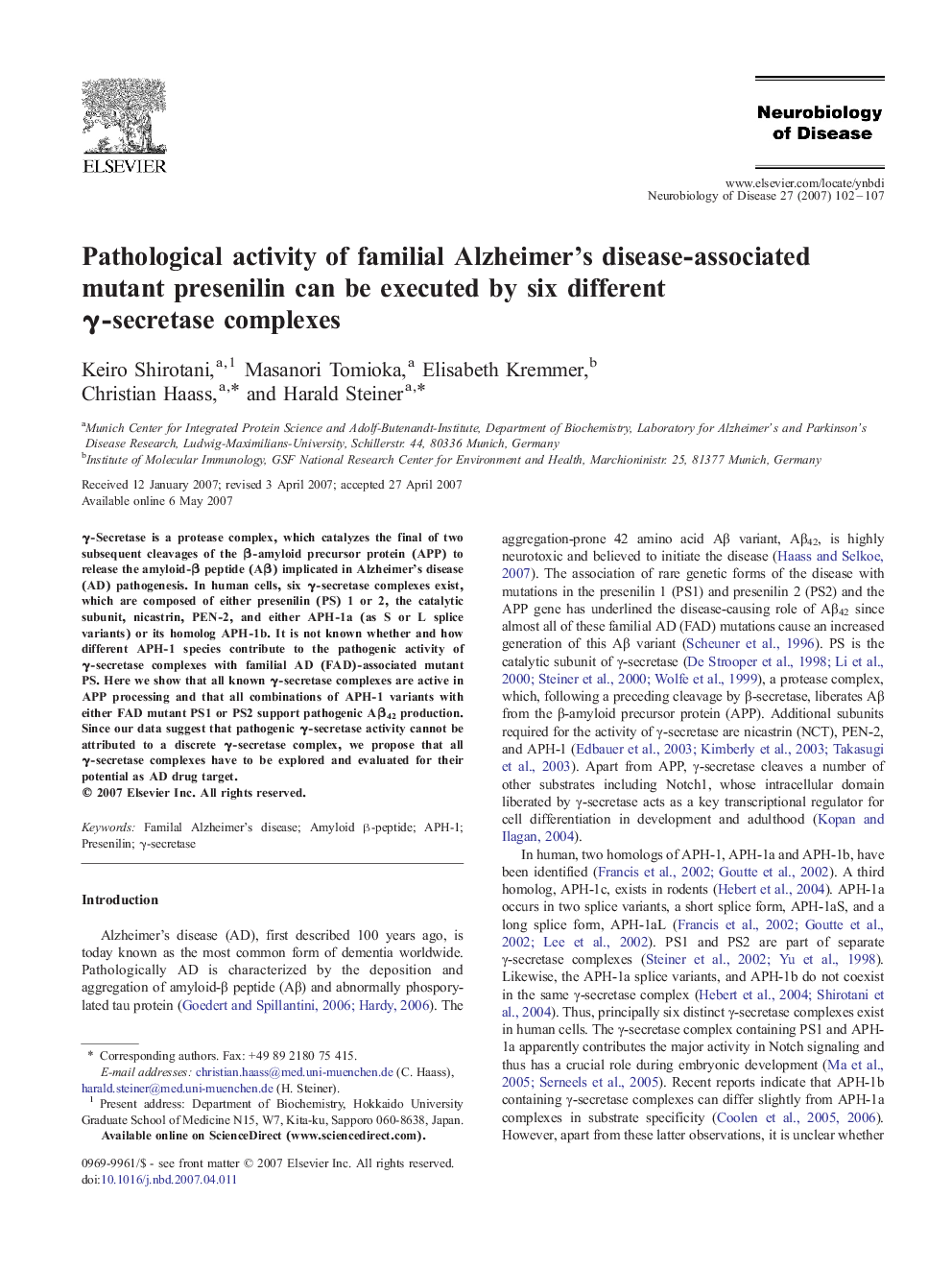| Article ID | Journal | Published Year | Pages | File Type |
|---|---|---|---|---|
| 3070662 | Neurobiology of Disease | 2007 | 6 Pages |
γ-Secretase is a protease complex, which catalyzes the final of two subsequent cleavages of the β-amyloid precursor protein (APP) to release the amyloid-β peptide (Aβ) implicated in Alzheimer’s disease (AD) pathogenesis. In human cells, six γ-secretase complexes exist, which are composed of either presenilin (PS) 1 or 2, the catalytic subunit, nicastrin, PEN-2, and either APH-1a (as S or L splice variants) or its homolog APH-1b. It is not known whether and how different APH-1 species contribute to the pathogenic activity of γ-secretase complexes with familial AD (FAD)-associated mutant PS. Here we show that all known γ-secretase complexes are active in APP processing and that all combinations of APH-1 variants with either FAD mutant PS1 or PS2 support pathogenic Aβ42 production. Since our data suggest that pathogenic γ-secretase activity cannot be attributed to a discrete γ-secretase complex, we propose that all γ-secretase complexes have to be explored and evaluated for their potential as AD drug target.
